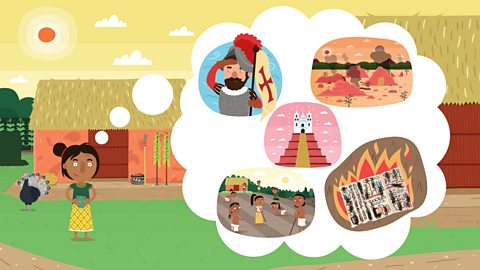Why were textiles important?
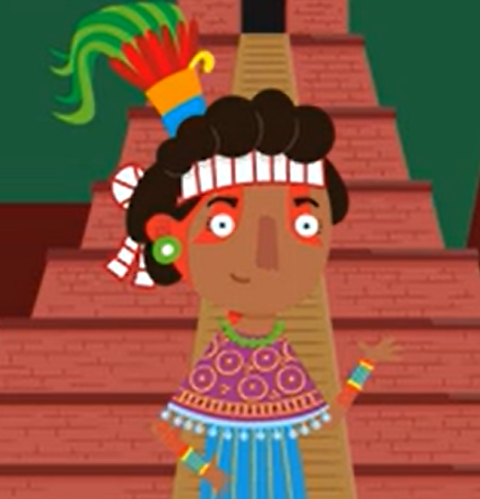
Maya clothes helped people identify between the richer and the poorer people in Maya society.
Textiles were an important part of religious beliefs and art. Women were the traditional weavers in Maya society.
Some of the earliest Maya weaving dates to 1000-800 BC.
How were the textiles made?
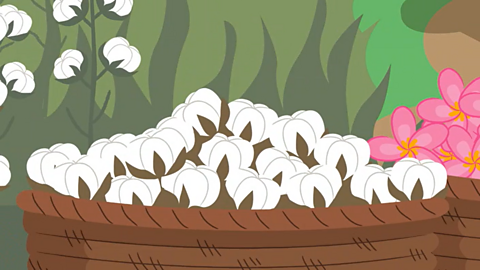
The Maya weavers worked mainly with cotton, which had to be washed and picked clean of seeds. This was hard work!
Cotton was associated with richer people. The loose fibres were spun into threads and made using a loom.
The cotton was often dyed to make multi-coloured clothes. Dyes were made of insects, molluscs (shellfish), indigo and plants.
Richer women worked with feathers and pearl beads. They had to learn to weave tapestries and brocade (a rich decorated fabric).

What did people wear?
Men typically wore a loincloth around the waist with sometimes a cotton sleeveless shirt.
Women wore a huipil, a loose-fitting tunic with an opening for the head and arms, or a traje which reached to the floor, held in a place by a faja, or sash. The huipil and traje are still worn today in Mexican culture.
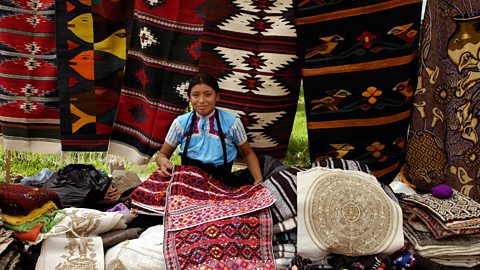
Image caption, A young Maya woman who is selling traditional goods at a market in Chiapas, Mexico.
Image caption, These Maya children from Lake Atitlan in Guatemala are weaving traditional textiles.
1 of 2
Men and women wore sandals, the farmers wore moccasins. Many women wore their hair long and in braids.
The priests and nobles wore decorative items such as jewellery. This could be made from jade, wood or bone.
What clothing was religious?
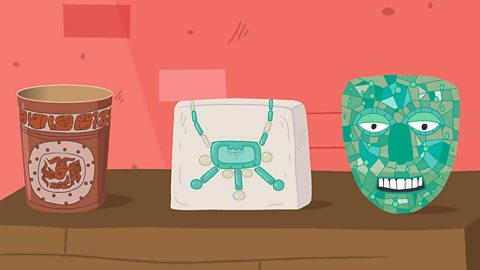
The deities (gods) were identified by their clothing and so were the humans imitating their appearance.
The Maize god was an example of this, who wore a netted overskirt made of green jade beads and a belt made of shell.
The Maize god was represented by kings and queens.

Activities
Activity 1: Quiz – Maya clothing
Activity 2: History Explorer game
Play this game to test your knowledge and learn even more facts about the ancient Maya.
History Explorer: Secrets through time
History Explorer: Secrets through time: KS2 History
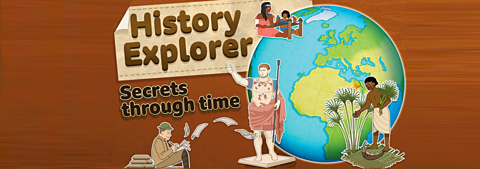
Bitesize Primary games. gameBitesize Primary games
Play fun and educational primary games in science, maths, English, history, geography, art, computing and modern languages.

More on Maya Civilisation
Find out more by working through a topic
- count7 of 20
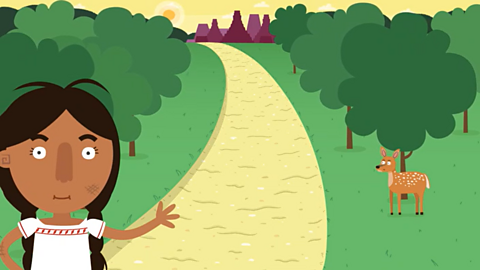
- count8 of 20
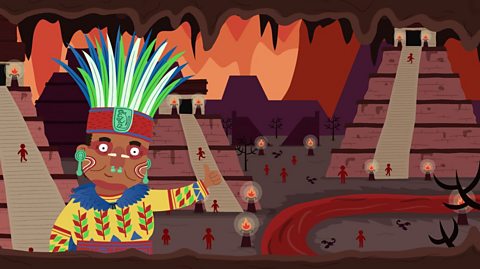
- count9 of 20
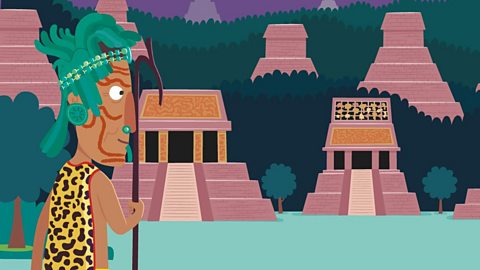
- count10 of 20
